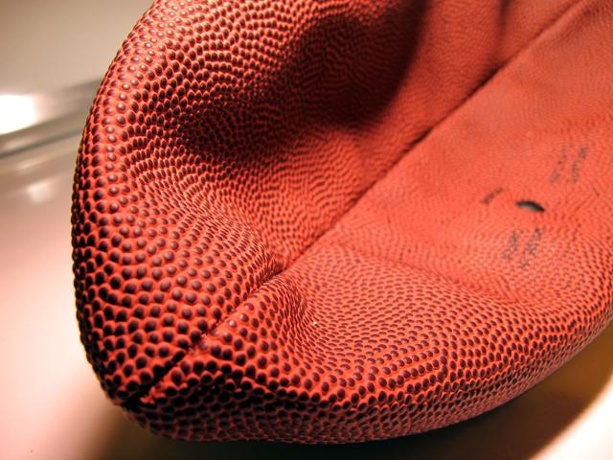Jeff Kemp originally wrote this for the Stepping Up blog which appeared May 15, 2015.
Few quarterbacks have dominated the NFL like Tom Brady. In his 13 full seasons, he has led the New England Patriots to four Super Bowl titles. What he may lack in raw talent, he makes up for in hard work. He watches lots of game film and pays attention to detail on and off the field, which is a common character quality of someone who performs at the highest level like he does.
But now the reputation of the reigning Super Bowl MVP is tarnished, with the league recently announcing that he will be suspended for the first four games of the upcoming season for participating in the deflating of footballs in the first half of the AFC championship game.
Breaking the rules, as the NFL has claimed, may not have been the most damaging thing Tom Brady did. He may not have even been suspended if he had admitted early on to his involvement (whatever that was) and apologized to the league for his indiscretion. Instead he allowed his agent to speak for him and deny even knowing of a scandal.
But after spending months reviewing the evidence surrounding the “DeflateGate” scandal, the NFL found enough in text messages to confidently say that Brady was involved in some way. And now public opinion has turned against him, with about 70 percent of avid football fans believing Brady cheated.
Let’s face it: if you don’t take the blame for your own mistakes (as small or as big as they may be) other people will spend their time, effort, and energy putting the blame on you. I learned that lesson in my last year with the Seattle Seahawks and gained a great appreciation for the importance of accepting responsibility. Even though I wasn’t involved in a cheating scandal or at the center of some controversy, the incident did involve my integrity.
I was the starting quarterback with the Seattle Seahawks and we had just suffered a 20-13 loss in an important game with Kansas City. In press interviews after the game, rather than own up to my shortcomings, I chose to play the optimist. “We’re going to do better next week; we’re going to turn the corner and go forward.”
It wasn’t until later in the week that I realized the damage that I had done. Eugene Robinson, a great friend and teammate, came up to me and told me privately, “Dude, a bunch of the coaches and defensive guys are questioning whether you’re a stand-up guy or an excuse maker. They don’t think you’re owning up to your responsibility for that loss.”
Their criticism wasn’t aimed at my skills or performance, but at who I am—my character. As I wrote in my book, Facing the Blitz:
They thought that, in my optimism, I’d left the blame with the team instead of taking my part in it. Not only had I contributed to the loss, it seemed I wasn’t being an accountable and trustworthy leader.
I felt misread and misjudged. I decided to talk privately to a couple of the defensive coaches who reportedly held these concerns. I told them I was my own worst critic and knew I’d fallen way short of what we needed to win. I knew I’d played a major role in our loss. … My team wanted to hear that I understood my role in our loss. My play wasn’t the only reason we lost, but they needed to see that, first, I got it, and second, I was willing to take the heat, not simply leave it with my teammates and coaches.
The bottom-line issue isn’t the results of your actions as much as what it says about your character. Whether it’s me playing down my part in a loss or Tom Brady refusing to admit even an awareness of the team fudging on league rules, the ends still don’t justify the means.
Another NFL great quarterback recently weighed in on the “DeflateGate” controversy. Brett Favre believes that even if Tom Brady broke the rules it wasn’t really cheating because it didn’t affect the outcome of the game. He was just doing what everyone else does—trying to get a competitive edge.
A common philosophy in the world, and in the world of professional sports is, “If you’re not getting caught every once in a while, you’re not working hard enough.” It’s ironic that someone as good as Brady would feel a need to do something that has so little impact on the outcome of the game to gain a competitive advantage.
Deflating your ego
Maybe an even bigger issue is what happens when you make it to the top of the heap, or the top of the league. You begin to believe the hype that everything depends on you. You may even begin to see yourself as a special case. You then justify actions that for most everyday people would be indefensible.
American society invites a pride and hubris in its successful people, and that is reflected in how Tom Brady and his agent have continued to oppose the NFL investigation. Pride and hubris aren’t attractive to the public. Pride lets you think you can do things differently because you think you are special. It’s easy to get sidetracked when you’re in the spotlight and when you’re trying to keep up expectations as the being the best. But Scripture brings us back to reality:
[Tweet “Issues like “DeflateGate” help us check our own character to see if we are cutting corners, cheating, or taking ethical shortcuts. And it’s a great opportunity to teach our kids valuable lessons about integrity and humility.”]
“Pride comes before destruction, and a haughty spirit before the fall.”—Proverbs 16:18
“Also if anyone competes as an athlete, he does not win the prize unless he competes according to the rules.”—2 Timothy 2:5
But then there’s another scriptural reminder than keeps us from pointing the finger too much at others.
“Brothers, if anyone is caught in any transgression, you who are spiritual should restore him in a spirit of gentleness. Keep watch on yourself, lest you too be tempted.”—Galatians 6:1
My teammate Eugene Robinson helped me to open my eyes and see the impact of my actions. Issues like “DeflateGate” help us check our own character to see if we are cutting corners, cheating, or taking ethical shortcuts. And it’s a great opportunity to teach our kids valuable lessons about integrity and humility.
The above post was first seen in the Stepping Up blog, written by Jeff Kemp



